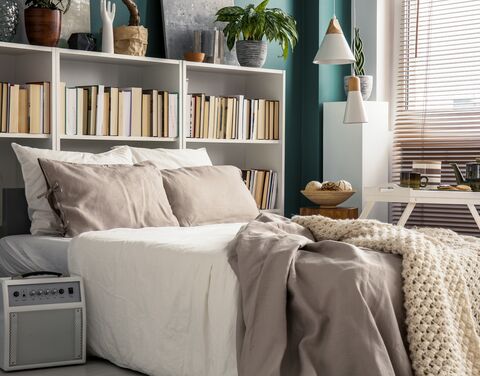
A mountain cabin in Entlebuch, a loft in Zurich, or a houseboat on Lake Geneva: In Switzerland, over 50,000 accommodations are currently offered through Airbnb. Are you thinking of subletting a room or your entire apartment from time to time with Airbnb?
If a rental property is fully or partially sublet, this is called subtenancy. In Switzerland, subtenancy or subletting is essentially permitted under the law. Individual rooms or an entire apartment can be sublet if the landlord knows about it.
Subletting with Airbnb is not yet governed by rental law; treatment varies among the cantons. For this reason, the following also applies for subletting with Airbnb: The renter must ask the landlord for permission. Theoretically, the renter has to ask for permission from the landlord for every new booking. The conclusion of a written agreement between the renter and the landlord which stipulates that the landlord grants general consent for subletting can be useful.
Consent to subletting can only be refused in the following cases:
The main information you must pass on to the landlord when subletting is the rental charge. The identity and number of tenants, the duration of the sublet, and the purpose of use are also relevant information. The simplest way for the tenant to keep the landlord informed is generally to forward them the planned Airbnb entry. Incidentally, this duty to inform also applies during the entire duration of the sublet. This means, for example, in the case of changes during the ongoing sublet as well.
For operators of hotels and guest houses, collecting tourist tax for each night stayed is standard procedure in many municipalities. Since intermediation platforms increasingly represent competition to the traditional hotel business, some municipalities have modified their regulations: They now require Airbnb hosts too to collect tourist tax from their guests. The tax is often combined with a ticket for the local public transportation system, offering added value for the guest. It's certainly worth your while to obtain the corresponding information from your local municipality.
Conditions are regarded as unacceptable, in particular, if the subletting charge the subtenant is paying is excessive compared with the rental fee that the principal landlord charges.
A modest premium is of course allowed since the Airbnb host is usually offering the rental property as fully furnished and is taking care of cleaning and supplying fresh bedding and towels. At the same time, the property may not be sublet commercially. The principal renter must still have the intention of using the apartment themselves.
The landlord suffers considerable disadvantages when, for example:
In cases of this sort, the landlord is entitled to refuse or withdraw their consent to the sublet.
We recommend requesting consent to subletting your apartment or a room in writing. Only then can you prove in the event of disagreements or misunderstandings what you have agreed with your landlord.
Your landlord should grant permission in writing and by registered mail as soon as possible after they have received your request. However, the law does not stipulate a deadline by which the landlord must respond to the request to sublet. If they do not respond, the silence may in some cases be interpreted as approval – even they are not in agreement.